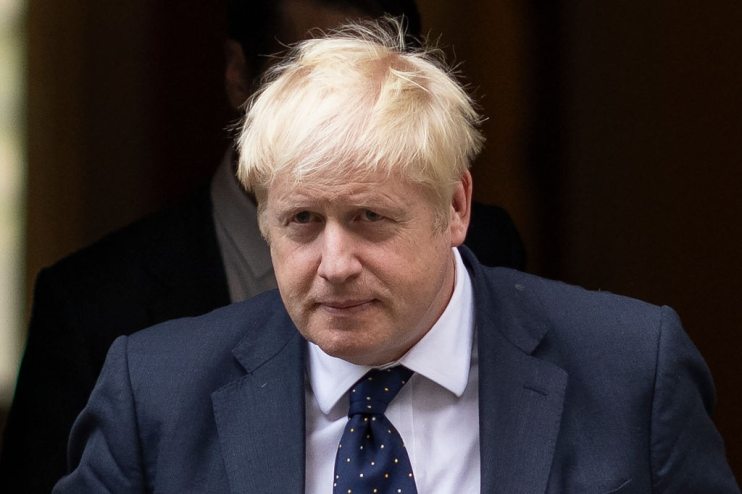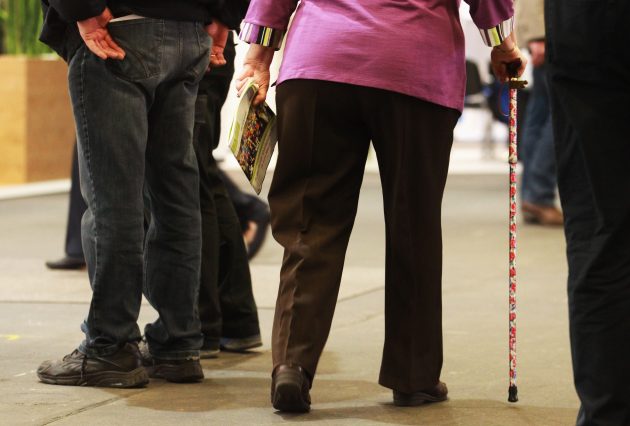PM hikes National Insurance and dividends tax by 1.25 per cent to pay for NHS and social care reform

Britons will be hit with £12bn-a-year tax rises to pay for increases in NHS and social care spending, with National Insurance and dividends tax in Boris Johnson’s crosshairs.
A new Health and Social Care Levy will effectively hike National Insurance Contributions for employees and employers by 1.25 per cent from April 2022, while taxes on dividends will also increase by 1.25 per cent to ensure the self-employed do not try and avoid the new levy.
The tax hikes, which will also hit people over the pension age that are still working, have been criticised widely by Tory MPs and party grandees, with the increase in National Insurance breaking a manifesto promise from the 2019 election.
The tax will be progressive, meaning those who earn more will pay more.
For example, a basic rate taxpayer earning £24,100 will contribute £180 a year and a higher rate taxpayer earning £67,100 will contribute £715 a year.
The increase in dividends tax will also likely come under fire from the private secto, as it could deter investment.
The Prime Minister told a Downing Street news conference this evening that no Conservative government wanted to raise taxes but said the costs could not have been met through borrowing.
“This new levy will break our manifesto commitment but a global pandemic wasn’t in our manifesto either,” he said.
The plan is being described by Number 10 as “the biggest catch up programme in UK history” and will see the majority of the £36bn spent in the first three years from the tax increases on improving the NHS waiting list – currently at 5.5m people after Covid-19.
After 2024-25, more of the funding will go toward paying for social care costs as a part of long promised reform of the system.
Speaking in the House of Commons earlier, Johnson said: “Some will ask why we don’t increase income tax or capital gains tax instead, but income tax isn’t paid by businesses so the whole burden would fall on individuals – roughly doubling the amount the total taxpayer is expected to pay.
“The total revenue from capital gains tax is £9bn this year – our new levy will share the costs between individuals and businesses and everyone will contribute according to their needs.”
National Insurance Contributions last year, meanwhile, contributed £142.7bn to the Treasury’s coffers.
From October 2023 people with assets of between £20,000 and £100,000 will still contribute to their adult care costs, while people with assets of under £20,000 will not pay for any of their costs.
The current floor for having to contribute is £23,500.
The maximum cap on individual costs will be £86,000 – about three years of care costs – while the rest will be paid by the government.
Proceeds from the levy will be ringfenced to ensure they are spent on health and social care only.
Johnson said he will “work with the financial services industry to innovate and help people insure themselves against expenditure” up the £86,000 limit.
“A universal system of free care for all would be needlessly expensive when those who can afford to contribute to their care should do so,” Johnson said.

“The state should target its help at protecting people from the catastrophic fear of losing everything to pay for the costs of their care.”
There are concerns the dividend tax hike will unfairly hit self-employed workers that were largely overlooked by the government when distributing Covid financial support.
Many self-employed workers are freelancers who earn relatively little compared to PAYE workers, but often pay themselves through dividends for tax purposes to maximise their income.
Andy Chamberlain, director of policy at the Association of Independent Professionals and the Self-Employed, said: “After the financial damage of the pandemic, exclusion from support and the changes to IR35 taxation, this new tax hike on dividends will make it almost impossible for freelancers to continue to work through a limited company.”
“To limited company directors – from project managers to graphic designers – this is salt in a year of wounds.”
A large proportion of the receipts generated by the dividend tax hike will be sourced from business owners, who do not receive income through payroll, but through dividends, raising questions over whether a more punitive dividend tax regime will disincentivise entrepreneurship in the UK.
Kitty Ussher, chief economist at the Institute of Directors, said: “The surprise new tax on dividends will yet again target small company directors. Incorporated sole traders and other owner-managers, who relied on dividend income, were the only group of workers that were not supported by government during the pandemic.”
Mike Cherry, national chair of the Federation of Small Businesses, said: “These hikes will have business owners and sole traders feeling demoralised at the point when they’re trying to recover from the most difficult 18 months of their professional lives. For those thinking about starting up, they send completely the wrong message.”
Sir Keir Starmer, leader of the Labour Party, criticised the government for failing to impose stricter levies on other assets, which are typically held by wealthier households, that generate income.
Starmer urged the government to look at taxing “income from stocks, from shares, from dividends and from property.”
The new Health and Social Care Levy will be taxed in 2022-23 by increasing National Insurance, before it is made into a separate levy from April 2023 onward.
The increase has been heavily criticised by business groups and Labour for disproportionately hitting the lowest paid workers the hardest.
It also means Johnson has broken his manifesto promise to not increase VAT, income tax or National Insurance.
Starmer said: “This is a tax rise that breaks a promise that the Prime Minister made at the last election.
“A promise they all made at the last election – every single one of them. A tax rise, a tax rise on young people, super market workers and nurses. A tax rise that means a landlord renting out dozens of properties won’t pay a penny more, but tenants working in full-time jobs would.
“A tax rise that places another burden on businesses just as they’re trying to get back on their feet.”
The Prime Minister said Covid meant that extraordinary measures had to be taken.
“No Conservative government wants to raise taxes and I will be honest with the house – yes I accept this breaks a manifesto commitment, which is not something I do lightly but a global pandemic was in no one’s manifesto,” he said.
“I think the people of this country understands this in their bones and they see the enormous steps the Treasury have taken.”
On budget day in March, Sunak tweeted the Conservatives would not raise the rates of income tax, national insurance or VAT.
Tory backbencher Richard Drax this afternoon in the Commons asked Johnson: “As Conservatives, broken pledges and tax rises should concern us. Our finances are in a perilous state. Surely a radical review of the NHS is needed if this money is not to go and disappear into another blackhole?
“Does my right honourable friend agree with me that the Conservative way to raise revenue is to lower taxes not raise them?”
Johnson responded: “I do agree with that general proposition.
“But in the current circumstances after 18 months in which it has been necessary for the Government to perform the most enormous fiscal exertions to put its arms around the country at a very, very difficult and dangerous time”.